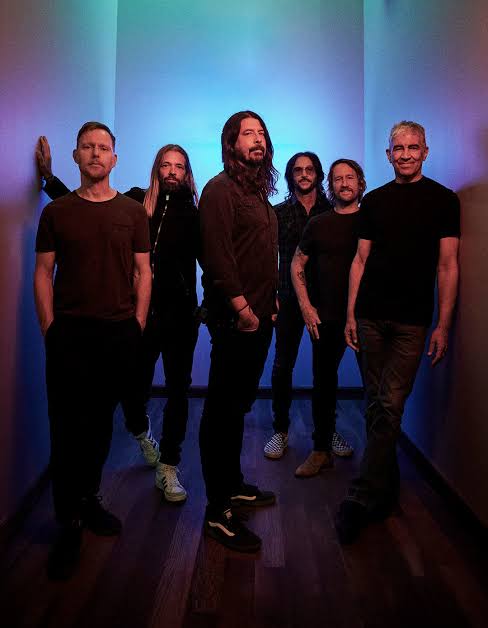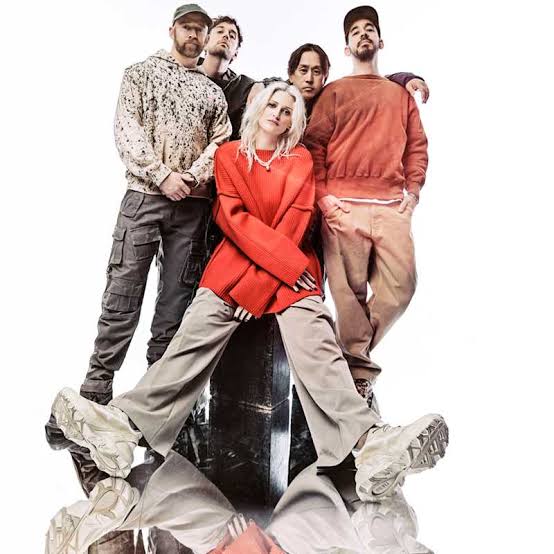
For decades, fans have shouted the name “Foo Fighters” from the depths of arenas, festivals, and stadiums around the world — but few ever stopped to ask where that strange, unforgettable name actually came from. Now, after years of playful mystery, the band has officially opened up about the untold story behind their iconic name, revealing how it captures both the spirit and soul of their early beginnings.
Back in 1994, after the tragic end of Nirvana and the loss of Kurt Cobain, Dave Grohl found himself in an emotional storm. He was searching for a new start, something that would help him heal through music without the weight of fame or expectation. Alone in a studio, he began recording songs that would eventually form the debut Foo Fighters album. When it came time to label the tapes, he didn’t want anyone to know it was just him. So, he reached for something odd, something anonymous — a phrase rooted in mystery and history: “Foo Fighters.”
The term itself dates back to World War II. Allied pilots used “foo fighters” to describe strange, unidentified flying objects they encountered during night missions. These glowing orbs and lights seemed to defy explanation — some thought they were enemy weapons, others believed they were supernatural or even extraterrestrial. The term stuck, becoming a part of aviation folklore. Grohl, a longtime fan of sci-fi and fascinated by unexplained phenomena, saw it as the perfect metaphor for the unknown power of music and creativity that had guided him through darkness.
But there’s more to the name than just a historical reference. Grohl has admitted that, at the time, he didn’t expect the project to turn into a world-famous band. “If I’d known it would become huge,” he once joked, “I would have picked a better name.” Yet that offbeat honesty is exactly what made Foo Fighters so enduring. The name felt raw, unpolished, and full of curiosity — just like the songs that launched his second musical life.
Some fans believe the choice carried deeper symbolism. The “Foo” — something mysterious, elusive, and ungraspable — could represent Grohl’s personal journey after Nirvana: the search for meaning amid chaos. The “Fighters” could symbolize resilience and defiance, the will to push through pain and rebuild. Together, “Foo Fighters” became more than just a band name; it became an emblem of survival and reinvention.
Others have speculated that the name reflects Grohl’s fascination with duality — light and dark, chaos and order, grief and joy. Just as WWII pilots looked to the skies in fear and wonder, Grohl looked inward and outward at once, finding beauty in the unknown. Naming his band after mysterious lights in the night sky almost felt like reclaiming hope — proof that even in confusion, there’s something worth chasing.
Over the years, the name has become inseparable from the band’s identity. It’s not sleek or corporate; it’s imperfect, a little weird, and full of character. That’s exactly what Foo Fighters have always been. From the raw energy of “Everlong” to the emotional power of “The Pretender,” the band has embraced that same balance of mystery and authenticity their name suggests.
Even now, decades later, Grohl looks back with a smile. “It started as a joke,” he’s said, “but I think it fits. We were chasing something invisible — the spirit of music, the thing that keeps you alive.” In that sense, the “Foo” still flies — a reminder that some mysteries are worth keeping alive.
The story also reveals a subtle irony: a band that began as one man’s secret project named after ghostly lights in the sky went on to become one of the brightest forces in rock history. Foo Fighters didn’t just name themselves after something unexplained — they became the phenomenon.
And so, the legend of the name endures. What started as a nod to wartime folklore and a cover for anonymity evolved into one of the most iconic band names in modern music. It’s strange, it’s meaningful, it’s mysterious — and, much like the lights that inspired it, it continues to shine brighter than ever.



